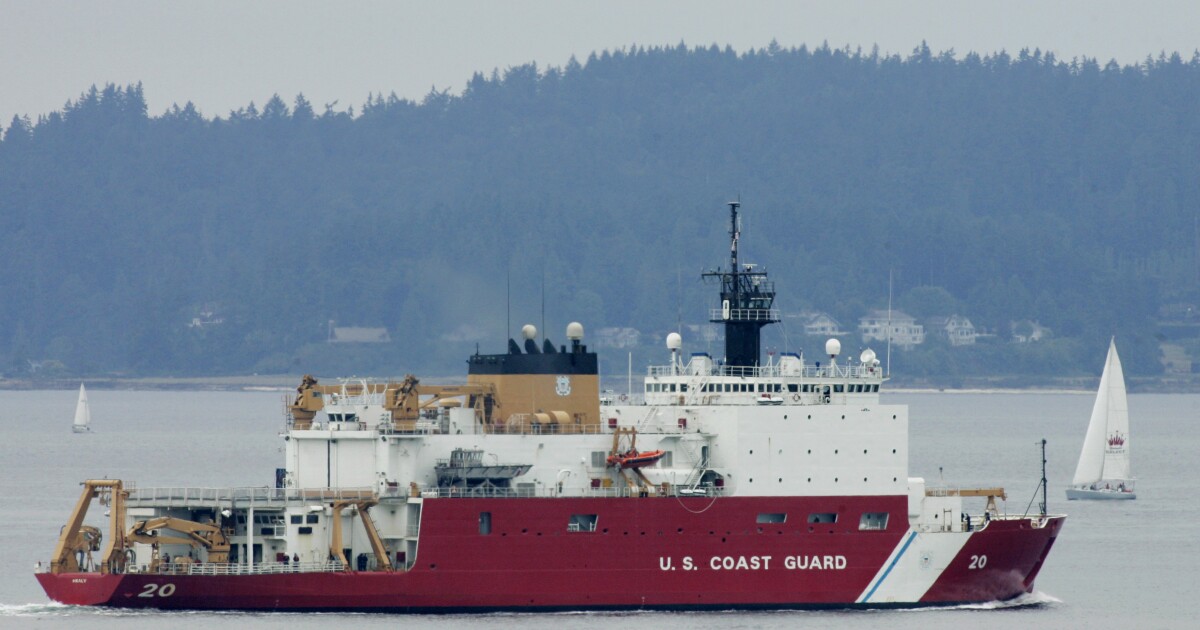

Democrats and Republicans in Washington are finding unity in a mutual concern over China’s and Russia’s rush to take control of the Arctic region.
Several thousand miles north of the U.S.-Canada border, off the Alaskan coast, Chinese and Russian entities are attempting to expand their maritime fleets into the somewhat overlooked and forgotten Arctic.
BIDEN ADMINISTRATION SETS EV TAX CREDIT RULES MEANT TO CUT OUT CHINA
“The Arctic is a region of increasing importance to homeland security, and it is one area where I believe there is opportunity for bipartisan cooperation,” said Rep. Bennie Thompson (D-MS), the top Democrat on the House Homeland Security Committee, in prepared remarks for a Nov. 29 hearing.
“With climate change, Arctic waters are increasingly open to maritime activity like shipping, energy exploration, fishing, and tourism,” Thompson said. “Adversaries like Russia and China are trying to gain strategic advantage, and the U.S. must be ready to assert and protect its interests in the region.”
The U.S. Coast Guard, a military branch that is under the Department of Homeland Security, has played a leading role in maintaining a U.S. presence in the Arctic, but lawmakers are worried about the United States’s ability to keep up with the competition from the two hostile nations, who are moving at an alarming pace to take advantage of the untapped area.
“The Arctic’s rich natural resources, crucial shipping routes, fishing waters, and the opportunity for future development make the region a flashpoint in geopolitical competition between the United States and its near-peer competitors, including an emboldened and aggressive Russia,” said House Homeland Security Chairman Mark Green (R-TN) in a statement. “Worse, despite having no sovereign territory in the Arctic region, the Chinese Communist Party is attempting to stake out interests in Arctic affairs.”
China has referred to itself as a “near Arctic state” despite it not being geographically located near the region. The description is merely an attempt, Green said, “to impose its will through diplomatic pressure and increasing maritime transits by [People’s Republic of China] vessels in Arctic waters.”
The Russian mainland, however, is just 60 miles from Alaska.
Last year, the Biden administration published the National Strategy for the Arctic Region, which included bolstering security in the Arctic given its proximity to the U.S., addressing climate change and protecting the environment, and working with indigenous communities in the Arctic and other international allies.
“The United States, by way of Alaska, is one of eight Arctic countries,” said Rep. Carlos Gimenez (R-FL), chairman of the House Homeland Security Subcommittee on Transportation and Maritime Security, in a statement.
Members of both parties agreed that the Coast Guard must step up its presence in the northern waters and that adding more “icebreaker” ships to the Coast Guard’s fleet is the best way of doing so, Green and Thompson said, but the U.S. is behind the competition.
The Coast Guard owns one heavy icebreaker, and the 57-year-old vessel is long past its glory days, according to the Congressional Research Service. In 2019, Congress approved funding for two similar vessels dubbed Polar Security Cutters, but construction has been delayed.
Russia boasts more than 50 icebreakers and is also adding military bases in the region. China has two vessels and is building more.
In Alaska, more can be done to boost existing military resources. The U.S. Air Force used to have early warning radar stations, long-range bombers, and missile defense capabilities in the state during the Cold War, Green said.
“The airspace in Alaska is the United States’s first line of defense against intrusions by aircraft or missiles, as we were brazenly reminded earlier this year with the Chinese aerial surveillance balloon,” Green said in his prepared remarks for the hearing.
CLICK HERE TO READ MORE FROM THE WASHINGTON EXAMINER
The speed of sea ice recession is turning the Arctic issue into a bigger problem for how parts of the Arctic Ocean become more traversable, allowing military and civilian ships to push through one of two major shipping routes: the Northern Sea Route and the Northwest Passage, according to research nonprofit group the Arctic Institute.
“This trend will only make Alaska more strategically important to the United States,” Green said.




